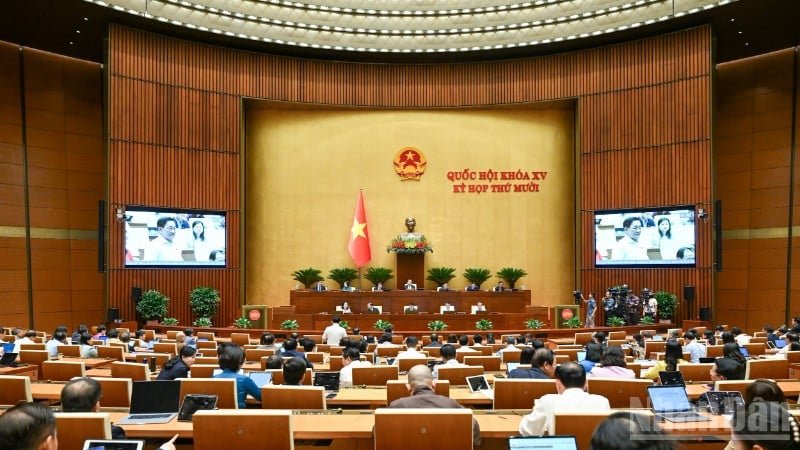
Lean organization but increased workload
On the morning of October 29, the National Assembly discussed in the hall the socio -economic situation in 2025 and the plan for 2026. Many National Assembly deputies said that the implementation of the two-level local government model is an important step in institutional reform and streamlining the apparatus to operate effectively and efficiently.
However, after a period of implementation, the model still reveals many difficulties and problems that need to be resolved soon to ensure smooth operation and better serve the people.
Delegate Mai Van Hai ( Thanh Hoa Delegation) commented that the work of building and enforcing laws has had many innovations in thinking and working methods, promptly institutionalizing the Party's policies and resolutions, especially in implementing the 2-level local government model.
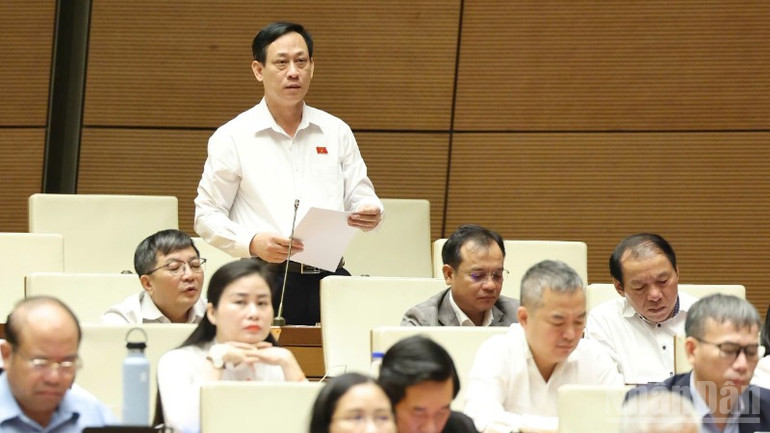
Delegates assessed that this is the most comprehensive and profound reform in the organizational arrangement of ministries, branches and localities, which has been directed resolutely, flexibly and creatively, bringing positive results, and receiving the attention, support and high appreciation of a large number of cadres, party members, voters and people.
According to delegates, after nearly 4 months of operation, the 2-level government model has basically operated smoothly, contributing to solving administrative procedures for people and businesses, focusing on socio-economic development tasks, ensuring national defense and security at the grassroots level.
However, reality shows that there are still problems such as the surplus or shortage of local cadres, especially in mountainous communes, border areas, remote areas; regimes and policies have not been improved accordingly.
Delegate Tran Quoc Tuan (Vinh Long Delegation) said that after implementing the 2-level local government model in 34 provinces and cities, the administrative apparatus was more compact in terms of focal points but the workload increased significantly. Officials and civil servants in many localities, especially at the grassroots level, had to do more work, travel further but their income had not improved.
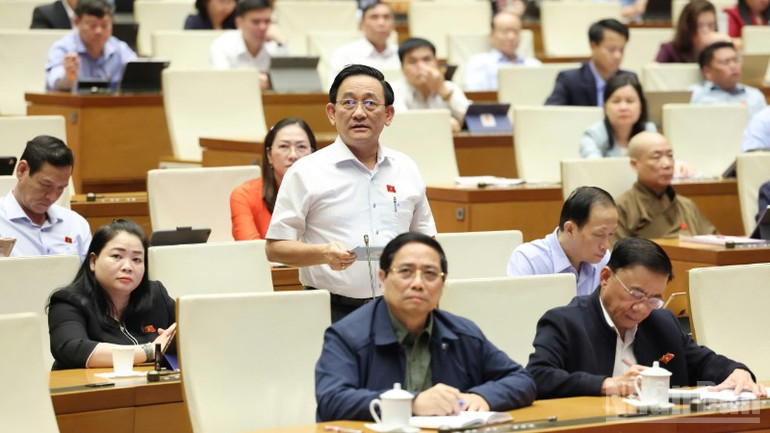
According to voters in many localities such as Quang Tri, Binh Thuan, Vinh Long, Nghe An, Lam Dong, Dong Thap, the merger of administrative units forced many commune officials to travel 10-15km to the new headquarters, while travel allowances and public service allowances have not been adjusted. Life is difficult due to increased costs, actual income has decreased by 10-12% compared to before.
In addition, many localities such as Bac Can, Can Tho and some provinces in the Mekong Delta also reflect the situation that grassroots cadres are having to shoulder many tasks and responsibilities due to streamlining the payroll but their income has not improved, affecting their psychology, motivation and work efficiency.
“These reflections are not just numbers or technical recommendations, but the voice of grassroots civil servants and public employees. They are the ones shouldering the heaviest workload of the state apparatus. If their lives are not guaranteed, the effectiveness of policy implementation will also be difficult to meet requirements,” the delegate said.
Perfecting decentralization and ensuring resources for grassroots governments
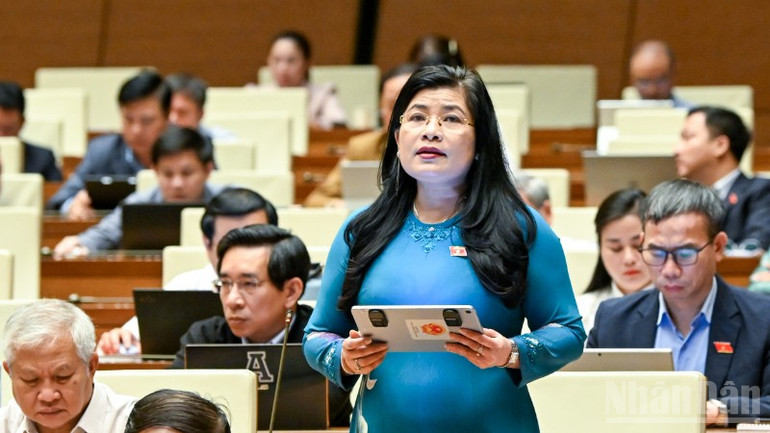
Meanwhile, delegate Dang Thi My Huong (Khanh Hoa) said that although the administrative organization arrangement has achieved many positive results, the resources to carry out tasks at the commune level are still difficult. The number of staff has decreased, the scope of management has become wider, the workload has increased, while many places still lack specialized human resources in areas such as finance, land, construction, science and technology.
The information technology infrastructure and facilities are still lacking and not synchronized, affecting the implementation of digital government and the provision of online public services. Some sectors and localities have not really considered decentralization and delegation of power as a key task, leading to the low rate of decentralized tasks associated with local administrative procedures, only reaching about 56%. In addition, the financial-budgetary mechanism has not kept up with the new model, many tasks are assigned but there is no accompanying funding source.
From this reality, delegate Dang Thi My Huong recommended that the Government arrange and build a stable and capable team of commune-level officials, especially in specialized fields; review and allocate resources reasonably, in line with assigned tasks; promote investment in information technology infrastructure and unified management software; and perfect the decentralization and delegation of authority clearly and transparently between the provincial and commune levels in the two-level government model.
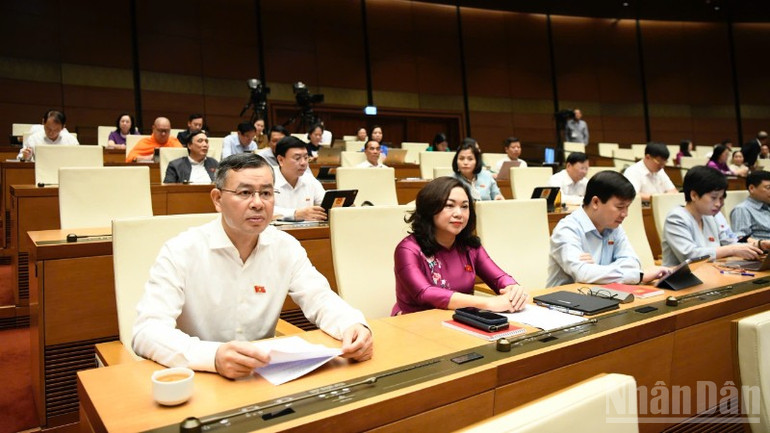
In particular, it is necessary to clearly define responsibilities, powers and power control mechanisms to avoid decentralization and administrative delegation without a clear legal basis. At the same time, it is necessary to supplement transparent regulations on regulations, inspection, supervision and power control mechanisms to avoid violations and abuse of power. The female delegate emphasized that this needs to be prevented, detected and handled early.
Delegate Nguyen Quang Huan (Ho Chi Minh City Delegation) proposed that the Government regularly survey and evaluate difficulties and problems of local governments at two levels, especially at the commune and ward levels, regarding organization, human resources, and budget; at the same time properly implement decentralization, delegation of power, and resource allocation to promptly resolve them, ensuring that the two-level government model operates effectively and serves the people better.
Delegate Mai Van Hai also proposed that the Government direct a re-evaluation of decentralization and delegation of power to communes and wards to adjust them to the new model; promptly determine job positions, develop appropriate salary policies; promulgate regulations on evaluating cadres based on work results and have appropriate screening mechanisms.
At the same time, it is necessary to pay attention to investing in infrastructure for digital transformation, information technology and digital skills training for commune-level civil servants, in parallel with effectively implementing the "Digital Literacy for the People" campaign that is practical for the people.
Source: https://nhandan.vn/bao-dam-hieu-qua-van-hanh-mo-hinh-chinh-quyen-dia-phuong-2-cap-post918926.html


![[Photo] Hue: Inside the kitchen that donates thousands of meals a day to people in flooded areas](https://vphoto.vietnam.vn/thumb/1200x675/vietnam/resource/IMAGE/2025/10/29/1761738508516_bepcomhue-jpg.webp)
![[Photo] Human love in the flood in Hue](https://vphoto.vietnam.vn/thumb/1200x675/vietnam/resource/IMAGE/2025/10/29/1761740905727_4125427122470875256-2-jpg.webp)
![[Photo] Prime Minister Pham Minh Chinh chaired a meeting to discuss solutions to overcome the consequences of floods in the central provinces.](https://vphoto.vietnam.vn/thumb/1200x675/vietnam/resource/IMAGE/2025/10/29/1761716305524_dsc-7735-jpg.webp)
![[Photo] Prime Minister Pham Minh Chinh chaired a meeting to evaluate the operation of the two-level local government model.](https://vphoto.vietnam.vn/thumb/1200x675/vietnam/resource/IMAGE/2025/10/29/1761751710674_dsc-7999-jpg.webp)


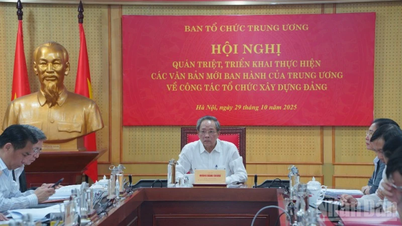


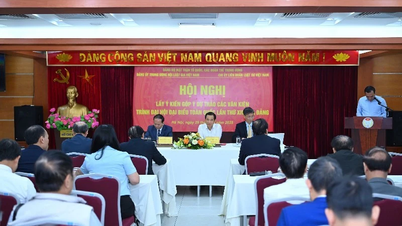
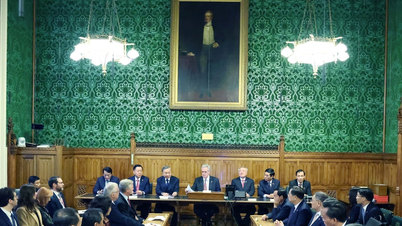

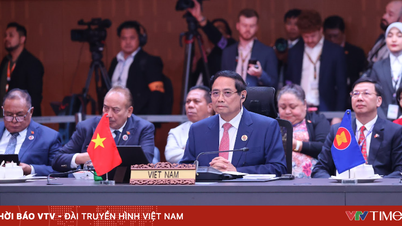
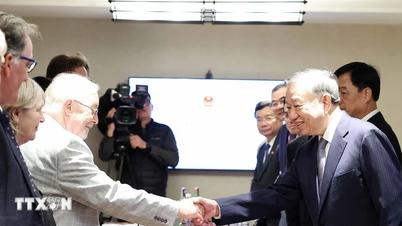






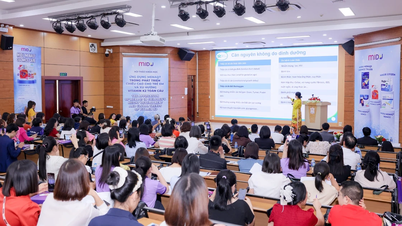
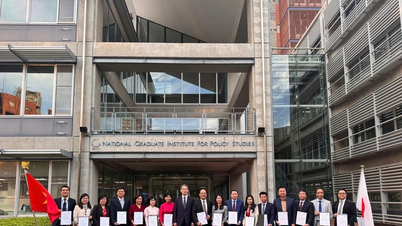
![[Photo] Prime Minister Pham Minh Chinh chaired a meeting to evaluate the operation of the two-level local government model.](https://vphoto.vietnam.vn/thumb/402x226/vietnam/resource/IMAGE/2025/10/29/1761751710674_dsc-7999-jpg.webp)
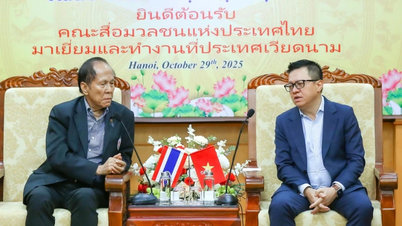



































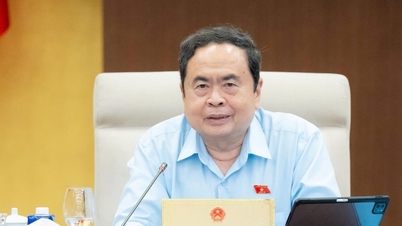

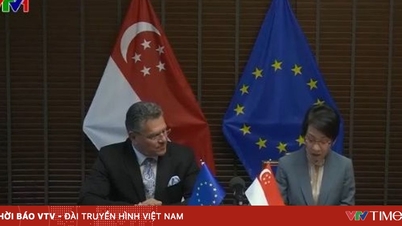
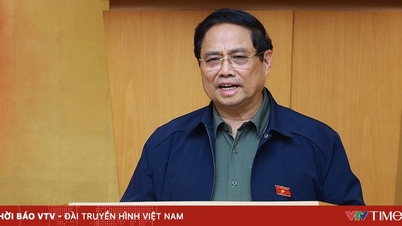
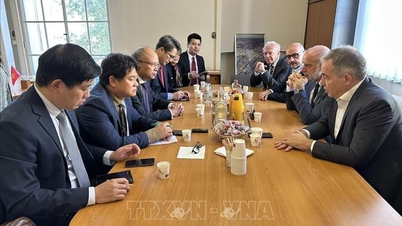

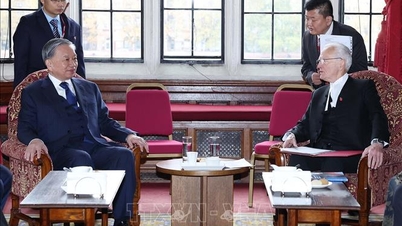
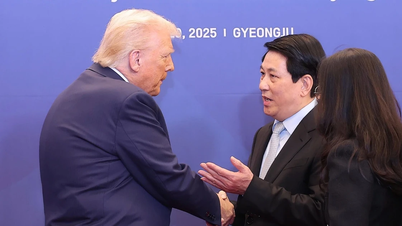


![[Live] Concert Ha Long 2025: "Heritage Spirit - Brightening the Future"](https://vphoto.vietnam.vn/thumb/402x226/vietnam/resource/IMAGE/2025/10/29/1761743605124_g-anh-sang-am-thanh-hoanh-trang-cua-chuong-trinh-mang-den-trai-nghiem-dang-nho-cho-du-khach-22450328-17617424836781829598445-93-0-733-1024-crop-1761742492749383512980.jpeg)



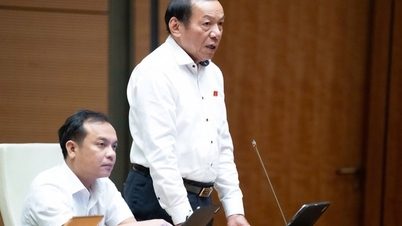
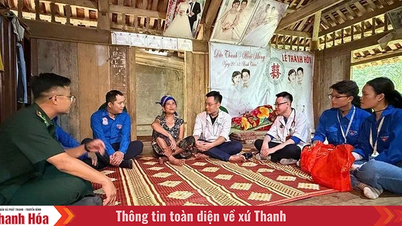







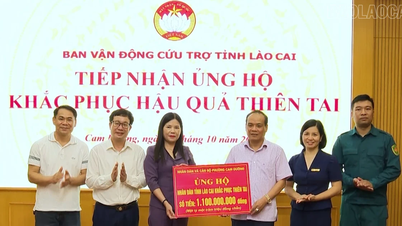

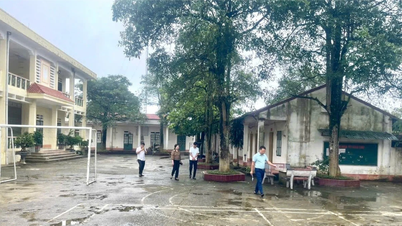















Comment (0)